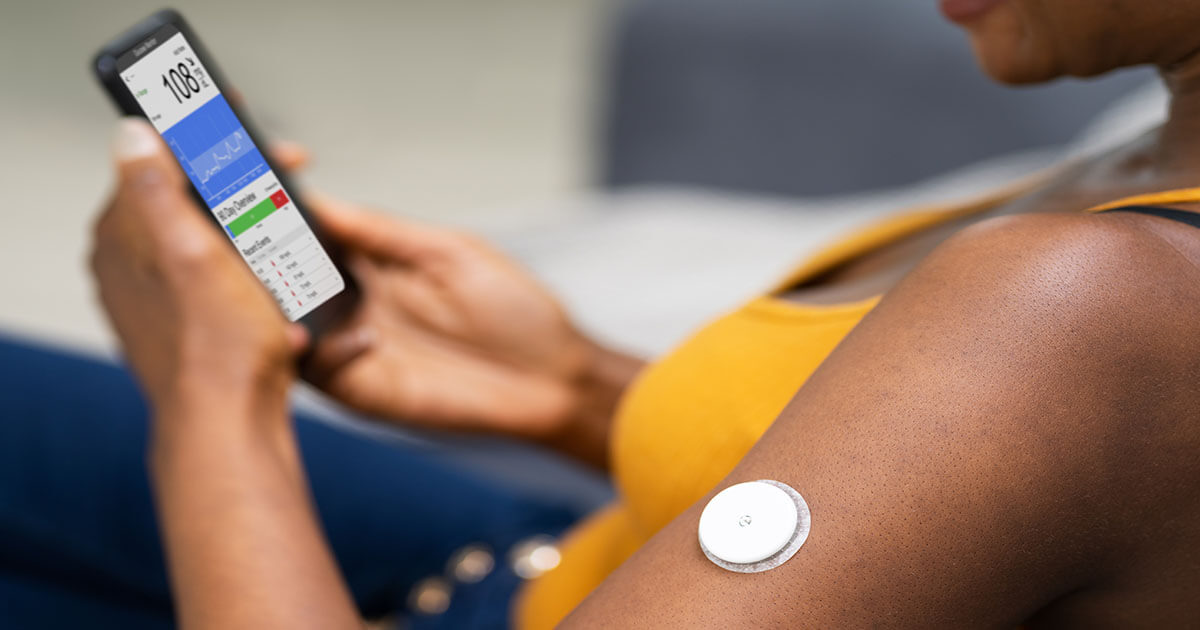A diagnosis of type 1 diabetes (T1D) generates many challenges for children and families, who must immediately begin navigating numerous medical requirements while also coming to terms with the potential implications and long-term nature of diabetes. The peri-diagnostic period is particularly difficult (Kovacs et al, 1997) and families may benefit from proactive psychosocial care to facilitate adaptation to prevent problems and enable early intervention if problems occur. Supporting families to ‘get off to a good start’ (Watts et al, 2014) is especially important in T1D in childhood, given that early metabolic control predicts outcomes for the following 10 years (Wright, 2009). Despite acknowledgement of the importance of this early period, many families do not have access to dedicated psychosocial support at this time.
Current provision of psychological care in the UK
The paediatric diabetes Best Practice Tariff was introduced in 2012 and provides an annual payment for the treatment of every child and young person under the age of 19 with diabetes (Randell, 2012). It included 14 criteria, one of which was: ‘Each patient must have an annual assessment by their MDT as to whether input to their care by a clinical psychologist is needed, and access to psychological support, which should be integral to the team, as appropriate.’ (Randell, 2012). This engendered a nationwide increase in the provision of specialist psychological care within paediatric diabetes (Binney and Roswess-Bruce, 2015). In practice, the standard has two requirements: assessment of – and intervention with – difficulties relating to emotional well-being (Hall and Waldron, 2014). However, the specific nature of psychological assessment and intervention offered to families following diagnosis, or throughout the course of the illness, has not been explicated. Subsequently, there is no guarantee this has increased the quality of care provided to young people and their families.
Current post-diagnostic psychological support in the UK ranges from routine involvement – including formal assessment – at a specific time to the absence of any direct input to post-diagnostic pathways (Binney and Roswess-Bruce, 2015). Although some aspects of psychological support could be carried out by a health psychologist, the authors are not aware of any paediatric diabetes services where this is currently the case: all 43 respondents to a recent survey asking about the provision of specialist psychological support in paediatric diabetes services were clinical psychologists (Binney and Roswess-Bruce, 2015).
Involvement from psychology services at this point provides the opportunity to:
- Normalise experiences
- Help families identify and draw on family strengths and resilience
- Screen for psychological and mental health conditions (eg disordered eating)
- Introduce the role of clinical psychology within the diabetes team and the nature of psychological support that can be provided to children and their families.
However, it is important to recognise that psychological interventions and therapy have the potential to be harmful if mistimed or seen to interfere with normal processes of adjustment, eg following a traumatic event or adjustment to loss (Lilienfeld, 2007).
Families benefit from finding ways of ‘keeping the illness in its place’ to allow them to determine the role of the illness in their family life, rather than have the parameters of family life dictated by the illness (Gonzalez et al, 1989). A recent survey of 855 parents of children with diabetes initiated by the Families with Diabetes National Network (2015) – which contributes to and supports the work of the National Children and Young People’s Diabetes Network – indicated inequitable access to psychological support across services and poor awareness of available support. Specifically in relation to the peri-diagnostic period, there was considerable variability across services regarding access to psychology following diagnosis. Of the 622 complete responses received, almost 60% did not meet a psychologist at or near diagnosis and 21.9% reported that they conversed with a psychologist in hospital, just after diagnosis at home or on the telephone, or as part of the first outpatient appointment. Of those not offered any support from a psychologist at diagnosis, over 70% would have appreciated the offer. These findings indicate a potential unmet need in relation to parents’ perspectives of preferring greater psychosocial support during the early period following diagnosis.
Introducing early psychological support: The Leeds way
Rationale for early support
General guidelines highlight the importance of emotional support following the diagnosis of a childhood illness (Royal College of Nursing, 2013) and specific guidance recommends offering tailored emotional support to children, young people and their families after a diagnosis of diabetes (National Institute for Health and Care Excellence [NICE], 2015). The family is the primary source of support for children and young people, and positive family attributes (support, warmth and cohesion) are associated with better diabetes self-care behaviours and metabolic control (Cameron et al, 2007). T1D in childhood is associated with a greater risk of distress and family conflict (eg Northam et al, 2004; Lowes et al, 2005; Streisand et al, 2008; Williams et al, 2009). There is also a relationship between metabolic control following diagnosis and the longer-term management of diabetes (Wright, 2009). These factors suggest the early provision of psychological support will be beneficial. Early support aids understanding of the condition (Fallowfield and Jenkins, 2004), optimises diabetes management (Johnson et al, 2012) and reduces longer term distress (Walker et al, 2006).
Providing support in practice
Historically, emotional support was provided immediately after diagnosis by non-psychologist multidisciplinary team (MDT) members as part of routine care. During 2013, specific clinical psychology service support was integrated into the post-diagnostic pathway. All families met with one of two clinical psychologists either during their hospital admission or at their first clinic appointment following diagnosis. Subsequent follow-up was determined based on clinical need, for example if the family or child was struggling to manage injections or the diabetes diagnosis was given in the context of pre-existing psychological difficulties such as restrictive eating. As a minimum, one telephone call was made approximately 12 weeks after diagnosis. In line with national policy emphasising partnership working with those accessing services (Coulter et al, 2013; NHS England, 2013; 2014), it was agreed that this change to service provision would be evaluated through patient and carer feedback.
Inviting and evaluating feedback from families
Families were invited to give feedback on:
- The time at which families first met a psychologist and how appropriate this seemed
- Whether or not the meeting aided their understanding of the role
- What was helpful and unhelpful
- Their experience of subsequent follow-up from psychology
- Any other comments.
Questionnaires were posted to all families of young people who had been diagnosed with T1D between January 2013 and January 2014 (n=43). For young people under the age of 16, questionnaires were sent to the parents. Families were invited to give feedback anonymously via stamped addressed envelopes to facilitate openness and honesty. Families who did not speak English were offered the opportunity to complete the questionnaires with an interpreter during contact with the team. None of the families who participated used this option.
The questionnaire data were collated and summarised. As this was a service evaluation no consent was sought for quotations to be published, therefore general responses are reported.
Results
Seventeen out of 43 families completed and returned the questionnaire; a response rate of nearly 40%. It is not possible to specify what proportion were completed by parents and/or young people.
There were roughly equal numbers of respondents who had either met a psychologist on the ward during hospital admission (eight; 47%) or at the first clinic appointment (nine; 53%). Of the eight who met a psychologist on the ward, four (50%) thought that this was too soon after diagnosis. In contrast, all of those who met a psychologist in clinic found this to be appropriate.
The majority of respondents (88%) reported that meeting a psychologist after diagnosis helped them to understand the role of psychology in diabetes. The two respondents (12%) who did not feel that this was the case indicated that there was too much else to focus on at the time.
In response to the question regarding what had been helpful about meeting a psychologist, eight families (47%) reported that having an awareness of the support available was helpful. Normalising feelings and having someone to talk to were viewed as helpful aspects of meeting the psychologist. One respondent highlighted that being able to talk about difficulties regarding their mental health was helpful. There was only one response regarding what was unhelpful, explaining that meeting a psychologist did not make them feel better but it did not make them feel worse either.
Twelve out of the 17 families reported that one of the psychologists followed up their initial meeting by phone or during clinic This follow-up was identified as helpful in normalising feelings, in knowing support was there and in gaining specific ideas to support young people with diabetes management. Two responses to the free-text part of this question highlighted that follow-up contact was particularly important, as their distress was higher at this time.
Respondents also provided ideas about how psychological support could be developed. Their suggestions included providing access to literature about normal adjustment following diagnosis, offering a parent or family support group, and extending contact after diagnosis to between 6 and 12 months.
Discussion
Families reported that access to clinical psychology as a part of the newly-diagnosed pathway for young people with T1D was valuable. Specifically, having an awareness of the role of psychology services in the team and the availability of support as needed seemed important. The variety of responses probably reflects the fact that adjusting to diagnosis is an individual process and the support required during this time is likely to be idiosyncratic. A flexible approach is required from the diabetes MDT, including psychologists, in order to meet the needs of families and provide the tailored emotional support recommended following diagnosis (NICE, 2015). All members of the MDT provide ongoing emotional support to families, and with the agreement of the young person or family any health professional within the team can refer to clinical psychology.
Respondents found the idea of having a space in which they can talk, and where their experiences relating to the life-changing impact of diagnosis are considered normal, to be helpful. Responsibility for the provision of such an environment is not limited to psychologists, as every healthcare professional will play a role in normalising families’ experiences. It is therefore important that all healthcare professionals are aware of the importance of families’ emotional needs and the wide range of responses that are considered normal following diagnosis (Lowes et al, 2005).
The timing of input from clinical psychologists seemed important, with those families who had met the psychologist at their first clinic appointment indicating that this was the right time. Half of those who first encountered the psychologist during admission immediately following diagnosis felt this was too soon. This response is consistent with a normal trajectory following diagnosis, in which families have to prioritise the practical challenges of managing T1D before being able to focus on the emotional impact (Ley, 1979). It also highlights the need to provide families with space following diagnosis to mobilise their own coping strategies and strengths (Walsh, 2006).
In relation to timing, the feedback fit with the authors’ experiences. When meeting families on the ward, they were understandably preoccupied with trying to learn how to medically manage diabetes. Meeting at the first clinic appointment instead provided a calmer environment and meant that families had already begun to mobilise their own coping resources in response to the diagnosis. Seeing families alongside other members of the MDT also seemed helpful in reducing the stigma associated with psychological difficulties and allowed more time to explain the roles of a clinical psychologist within the service.
More broadly, the Leeds paediatric diabetes team has attempted to integrate psychology input into different parts of the service while also recognising the importance of listening to families about their ideas of how psychology services can best support them.
Altering practice as a result of feedback
As a result of this feedback from families, a clinical psychologist now meets the family during the first clinic appointment as part of the newly-diagnosed patient pathway. This appointment is led by one of the medical consultants and also attended by a paediatric diabetes nurse and dietitian. This allows the role of psychology to be introduced, opens up discussion regarding the emotional impact of the diagnosis and facilitates recognition of the strengths and resilience that the family have shown in integrating diabetes into their lives. We have found it helpful to have these conversations in the clinic, where possible, as it is useful for all professionals involved in a family’s care to be aware of how the family members are adjusting to the diagnosis.
Follow-up from the clinical psychologist can be tailored to clinical need and extended as part of routine clinics for as long as required and there is also the opportunity for greater joint working with other health professionals. Some families experiencing more acute distress may require earlier support following diagnosis, for example if there are significant mental health concerns or significant difficulties administering treatments. These families will be prioritised for input during their inpatient admission.
As well as listening to potential concerns and areas of difficulty, the authors’ draw on ideas from narrative and solution-focused therapies (Walsh, 2006) by seeking to balance conversations by recognising people’s competencies and strengths. For example, they inquire around their best efforts, amplify positive achievements and help people to recognise the skills that they have used in reaching these. They also note helpful intentions, reconnect families to hope, and support them in identifying goals for the future.
A youth steering group, a peer mentoring group following diagnosis, and a youth club have been developed by the team youth worker. These initiatives allow team members to work much more closely with young people to gain a greater understanding of their experiences and increase their input into service development. This is important, as patient leadership has been identified as crucial in improving the experience of service users (NHS England, 2015). Consideration is also being given to providing additional literature and support groups for parents. Psychoeducation materials could provide information on what to expect following diagnosis and encourage parents to anticipate potential challenges alongside transition points in their child’s development, eg with moving to secondary school.
Possible further change: Psychosocial maps
Families’ fed back that they wanted to know more about what psychology services could offer and wished to gain specific ideas about how to help young people with diabetes management. A promising psychological option to assist families to provide diabetes self-management support comes from the concept of ‘psychosocial maps’ proposed by Rolland and Walsh (2006). Integrating a family resilience framework and family–systems illness model, the authors suggest developing psychosocial maps with families during the peri-diagnostic period. The maps guide families through the illness experience during different stages of the illness and help them consider how they can draw on their family strengths, compensate for vulnerabilities, and foster optimal adaptation.
The model suggests that families who have greater awareness of and time to think about the psychosocial developmental tasks that will be faced during the progression of diabetes throughout the different stages of childhood and the family life cycle will be more attuned and better prepared for future developmental transitions (Rolland and Walsh, 2006). The focal points of this process are listed in Box 1.
The feasibility of such an approach is currently under consideration at Leeds. The implementation of this approach would require the development of a business case to secure additional psychology time to support this.
Limitations
It is important to recognise the limitations of this evaluation, including the small numbers of self-selected respondents. It was not possible from the information collated to identify whether parents and young people have different needs following diagnosis. This will be important to consider, as there may be differing views about emotional support following diagnosis.
Conclusions
The provision of emotional support following diagnosis is important in helping families master the challenges associated with T1D, as there is evidence that these challenges can increase distress and family conflict. Given the effect that psychosocial factors and ‘metabolic memory’ following diagnosis have on the management of T1D, it is important that families are supported from the outset to recognise their strengths and develop resilience.
Although the feedback should be interpreted cautiously due to the small number of respondents, the available responses suggested that formal input from clinical psychology at diagnosis may have been too soon. Emotional support following diagnosis needs to be provided via a flexible and integrated approach from the outset. All members of the multidisciplinary team should be involved in listening to and normalising experiences, and building on the strengths and resilience of the family. MDT professionals can refer on to psychology services if more intensive or specialist support is required, eg if emotional distress remains high or has a significant and detrimental impact on the wellbeing of the young person or their family and their ability to manage diabetes.
Acknowledgements
The authors would like to thank the families who participated in this study and the interdisciplinary team at Leeds Paediatric Diabetes Unit for their feedback, as well as acknowledging the team’s commitment to improving care for families accessing the service.





NHSEI National Clinical Lead for Diabetes in Children and Young People, Fulya Mehta, outlines the areas of focus for improving paediatric diabetes care.
16 Nov 2022